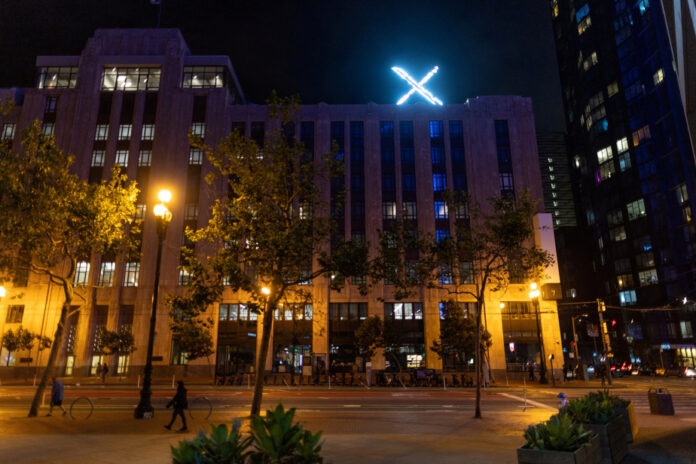(Brussels) Brussels announced on Monday a “formal investigation” targeting social network X for alleged breaches of European rules on content moderation and transparency, a first under the new European legislation on digital services (DSA ).
“The days when large online platforms behaved as if they were too big to worry about the rules are over,” said European Digital Commissioner Thierry Breton, stressing that the new rules help “protect our citizens and our democracies.”
The European Commission had already announced on October 12 the opening of a preliminary procedure on the subject of “false information”, “violent and terrorist content” and “hate speech”, targeting the social network of billionaire Elon Musk, five days after Hamas attacks on Israel.
This first step consisted of a request for information to verify compliance with European obligations by the X platform.
The responses provided by the American company, as well as its “transparency report” published at the beginning of November to take stock of the content moderation means implemented, did not convince the European executive, now endowed with powers of control and sanctions.
European legislation provides for fines of up to 6% of the global turnover of the group in question. In the event of serious and repeated violations, a platform may even be banned from operating in the EU.
“The evidence we currently have is sufficient to officially open proceedings against X,” said the vice-president of the European executive, Margrethe Vestager, quoted in a press release.
With the triggering of the “formal” procedure, the Commission explained on Monday that it would continue to “gather evidence” by requesting new information from X, conducting interviews or carrying out inspections.
This procedure now allows the Commission to take measures to force X to comply with the rules, or to accept remedies proposed by the platform to respond to concerns.
No deadline has been set for the ongoing investigation.
The investigations will focus in particular on “the dissemination and amplification of illegal content and disinformation in the EU”, underlined Thierry Breton.
The new legislation has enabled Brussels to launch a vast turn of the screw to bring the very large platforms into line in terms of content distribution, but also online commerce.
Various preliminary investigations have already been opened on different subjects against Apple, Google, Meta (Facebook, Instagram), TikTok, Snapchat, YouTube or Amazon.
But the procedure opened on Monday against X is unprecedented and highlights the specific concerns of the European regulator regarding it.
Brussels was already concerned at the end of September about the rate of misinformation on X, pinpointing its particularly poor results during tests carried out on several platforms.
After buying Twitter last year, Elon Musk carried out a massive wave of layoffs, which decimated the moderation teams. He regularly reaffirms his vision of freedom of expression, refusing any “censorship”, even if he assures that he respects the laws of each country.
In November, the European Commission asked its services to suspend their advertising campaigns on X, a measure also justified by an “alarming increase in disinformation and hate speech” on the platform.
The DSA imposes compliance with a series of obligations, such as acting “promptly” to remove any illicit content or making access to it impossible as soon as the platform becomes aware of it. It requires suspending users who frequently defy bans.
Very large platforms must also analyze the risks linked to their services themselves and put in place the means to mitigate them. They are also required to offer the regulator and approved researchers access to their data so that compliance with the regulation can be verified.





